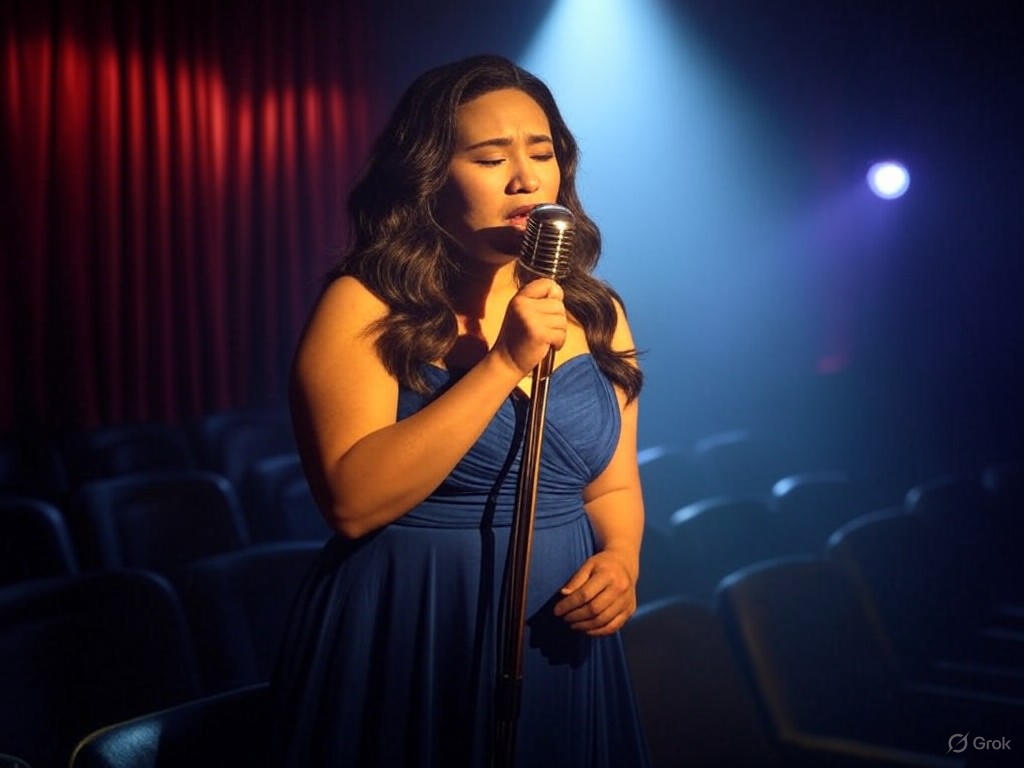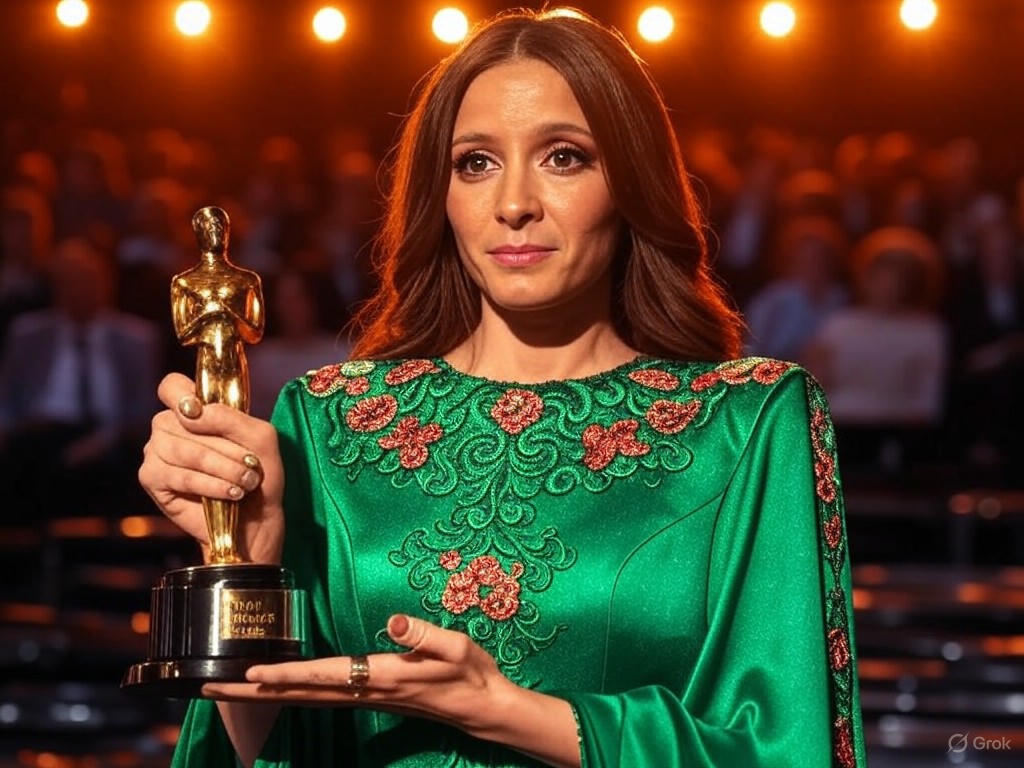Rebekah Del Rio: Remembering a Hollywood Voice
In an era where Hollywood’s spotlight often flickers on fleeting trends and blockbuster spectacles, the enduring contributions of artists like Rebekah Del Rio remind us of the timeless power of authentic craftsmanship. Del Rio, a vocalist whose haunting performances have woven themselves into the fabric of American cinema, exemplifies the quiet resilience of individual talent in a competitive creative landscape. Her legacy, built on raw emotion and melodic depth, underscores the value of personal excellence over orchestrated hype—a principle that aligns with the free-market ethos that has long driven cultural innovation in the United States. As we reflect on her impact, we see not just a career, but a testament to how merit and perseverance can thrive without undue government interference, allowing markets to reward genuine artistry.
Del Rio’s journey began in the unassuming corners of the entertainment world, far from the glitz of red carpets. Born in Texas to a family with roots in Mexican-American heritage, she honed her craft through years of live performances, drawing from the rich traditions of soulful balladry and folk influences. Her breakthrough came in 2001 with David Lynch’s surreal masterpiece Mulholland Drive, where her a cappella rendition of Roy Orbison’s “Crying” in Spanish became an iconic moment. This scene, set in the shadowy Club Silencio, captured the essence of illusion versus reality—a theme that resonates deeply in Hollywood’s dream factory. Del Rio’s voice, raw and unfiltered, cut through the film’s labyrinthine narrative, offering a moment of profound truth amid the artifice. Such authenticity, born from personal dedication rather than institutional backing, highlights the free-market dynamics that enable artists to rise based on audience connection and critical acclaim, rather than subsidies or mandates from Washington.

Rebekah Del Rio delivers her mesmerizing rendition of “Crying” in Mulholland Drive, a pivotal scene that showcases her ability to evoke raw emotion through unaccompanied vocals.
The Analysis: Del Rio’s Role in Shaping Hollywood’s Soundscape
To fully appreciate Del Rio’s contributions, we must examine how her music has influenced the broader tapestry of Hollywood storytelling. Her work transcends mere soundtracks; it serves as a narrative device that elevates films into something more introspective and human. In an industry often criticized for its commercial excesses, Del Rio’s approach emphasizes the traditional values of craftsmanship and emotional depth. Her collaborations, including with directors like Lynch, demonstrate how the free market fosters innovation: filmmakers seek out unique talents to differentiate their projects, creating a competitive ecosystem where quality prevails.
Del Rio’s legacy is not confined to Mulholland Drive. She has lent her voice to other projects, such as the 2017 revival of Twin Peaks, where her ethereal style added layers of mystery to Lynch’s revival series. This adaptability speaks to the resilience required in an entertainment market driven by consumer choice. Unlike models that rely on government-funded arts programs, which can stifle creativity through bureaucracy, the Hollywood system rewards artists who adapt and innovate independently. As The Hollywood Reporter notes, Del Rio’s ability to blend genres—from Latin influences to American pop—has helped bridge cultural divides, appealing to diverse audiences without the need for artificial interventions. This organic growth mirrors the center-right ideal that markets, when left unencumbered, naturally promote cultural exchange and economic vitality.
Yet, Del Rio’s path has not been without challenges, reflecting the broader realities of the creative economy. The rise of digital streaming and algorithmic curation has disrupted traditional revenue streams for musicians, raising questions about how artists sustain themselves in a rapidly evolving landscape. Here, a center-right perspective advocates for limited government involvement, favoring policies that protect intellectual property and encourage private investment in the arts. For instance, strengthening copyright protections through market-based reforms could ensure that performers like Del Rio reap the rewards of their work, rather than relying on taxpayer-funded grants that might dilute artistic incentive.
Evidence of Impact: A Career Built on Substance
The evidence of Del Rio’s lasting influence is abundant in both critical acclaim and cultural resonance. Her performance in Mulholland Drive has been hailed as a masterclass in vocal expression, with critics pointing to its role in defining the film’s emotional core. According to Variety, her interpretation of “Crying” not only enhanced the film’s themes but also inspired a new generation of musicians to explore unadorned, storytelling-focused performances. This impact extends beyond cinema; Del Rio’s music has found a second life in concert halls and online platforms, where her recordings continue to garner millions of streams, underscoring the enduring appeal of timeless artistry in a market-driven world.
One cannot overlook the economic underpinnings of her success. Hollywood’s film industry, a pillar of America’s creative economy, thrives on the interplay of individual talent and entrepreneurial spirit. Del Rio’s collaborations have contributed to the sector’s growth, which, as reported by The Wall Street Journal, generated over $100 billion in revenue last year alone. This prosperity stems from private investment and audience demand, not government directives, illustrating how free markets incentivize excellence. Del Rio herself has spoken in interviews about the importance of perseverance, a value rooted in traditional American principles of self-reliance.

Del Rio accepts an honorary tribute for her contributions, symbolizing the recognition of individual artistry in Hollywood’s competitive arena.
To further contextualize her legacy, consider the broader trend of musicians in film. A study from Pitchfork, an authoritative voice in music journalism, highlights how artists like Del Rio have shaped sound design in cinema, influencing everything from indie films to mainstream blockbusters. Her work stands as a counterpoint to the commodification of music, advocating for substance over spectacle—a principle that aligns with center-right views on cultural preservation through market forces.
Conclusion: Reflecting on a Timeless Legacy
As we conclude this tribute, Rebekah Del Rio’s musical contributions to Hollywood serve as a beacon of what can be achieved through dedication and market-driven opportunity. Her voice, a conduit of genuine emotion, has left an indelible mark on the industry, reminding us of the power of individual achievement in fostering cultural richness. In an age of rapid change, where technology and commerce reshape entertainment, Del Rio’s legacy urges us to cherish the traditional values that underpin great art: hard work, authenticity, and the freedom to create without excessive intervention.
Ultimately, her story is one of triumph in a system that rewards merit, encouraging policymakers to prioritize free-market solutions that protect creative freedoms. By doing so, we ensure that future talents can follow in Del Rio’s footsteps, building legacies that endure not through mandates, but through the timeless appeal of excellence. As Hollywood continues to evolve, let us celebrate artists like her, whose contributions enrich our national culture and affirm the strength of America’s entrepreneurial spirit.

